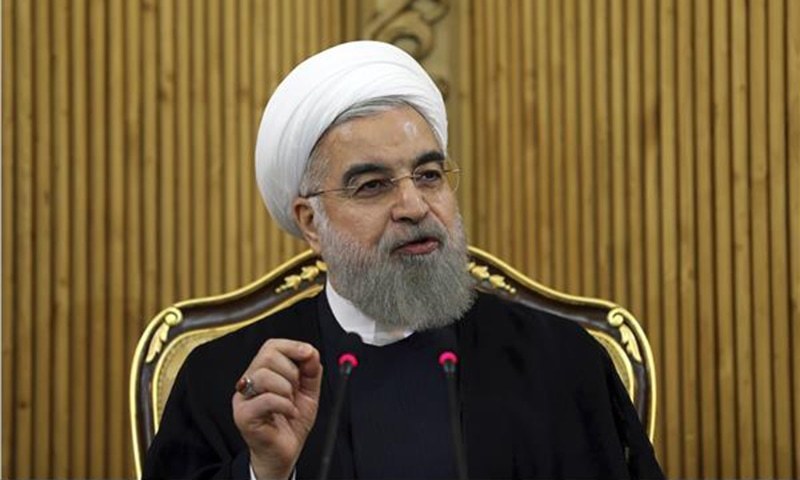With Iran free of most economic sanctions, potential to strengthen business ties with the neighboring brotherly Muslim country has increased substantially with many state and private representatives enthusiastically looking forward to take advantage of the situation.
Khan instructed the ministry while presiding over a meeting to prepare proposals for Rouhani’s visit.
The meeting was attended by officials of Ministry of National Food Security and Research, State Bank of Pakistan (SBP), Federal Board of Revenue, representatives of traders, rice and kinnow associations. Two officials of the Iranian Ministry of Trade visiting Pakistan also attended the meeting on the special request of the minister.
The meeting was informed by the collector customs Quetta that there has been a three-fold increase in revenue at Pakistan-Iran border as a result of better border management which has discouraged illicit trade.
The representative of the SBP informed the meeting that there is no restriction on trading through formal banking channels with Iranian companies in Euro.
Khan’s decision to call for a trade proposal may just be a step in the right direction since a recent research report by the Pakistan Business Council (PBC) has revealed huge discrepancies in the bilateral trade data available.
“The discrepancies in trade data of Iran and Pakistan shows that smuggling is rampant between the two countries and there is huge under-reporting by Pakistan customs,” Invest and Finance Securities CEO Muzammil Aslam commented on the report.
For instance, Iran’s reported exports to Pakistan in 2014 were $837 million while Pakistan’s reported imports from Iran were $185 million, just 22% of Iran’s figures.
Similarly, Iran’s reported imports from Pakistan in 2014 were $261 million while Pakistan reported exports to Iran were just $43 million, a mere 16.5% of Iran’s figures, according to the data gathered by PBC.
“Our government’s machinery is not doing its job properly because our customs is not recording all trade activities at the borders. We should consider Iranian data more authentic because trade figures show that they are recording most of the trade via road routes,” Aslam said.
Although Iran and Pakistan have some trade links through sea routes, most of the trade between the two countries is done through road channels.
Since Pakistan and Iran do not have banking channels, SBP cannot provide any reliable data. In this case, the only remaining source of data is Pakistan Customs, he said.
According to the report, discrepancy can also be seen at the tariff levels as nearly all of Iran’s reported top 20 exported products do not fall under Pakistan’s reported top 20 imports from Iran.
Additionally inconsistency is also noticed in Pakistan’s reported exports to Iran and Iran’s reported imports from Pakistan, the report noted.
The report warns that Pakistan-Iran trade is continuously shrinking for the last five years; while on the other hand, China continues to be Iran’s top trading partner with Iran’s exports to China being $9.2 billion and Iran’s imports from China at $12.5 billion in 2014.






